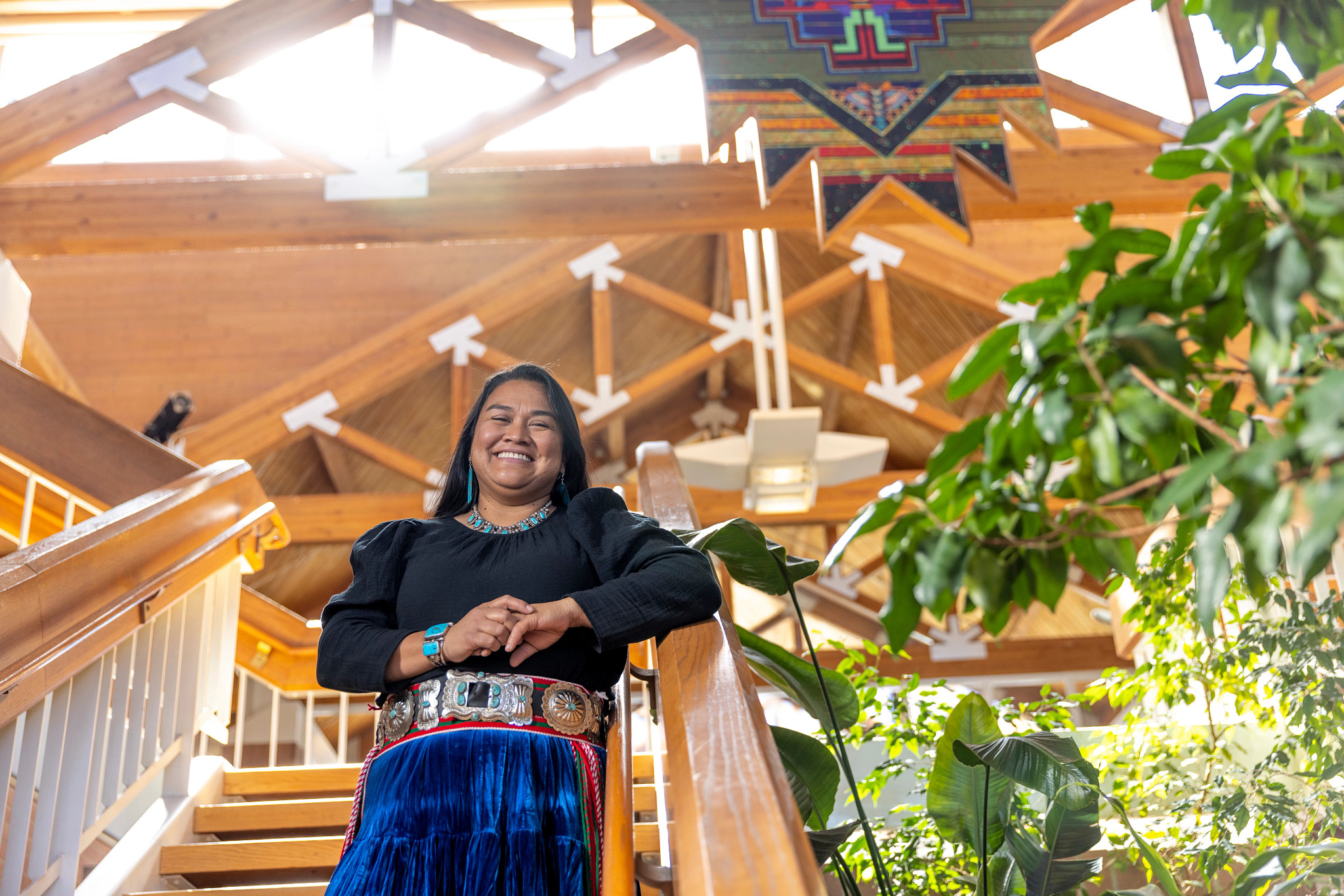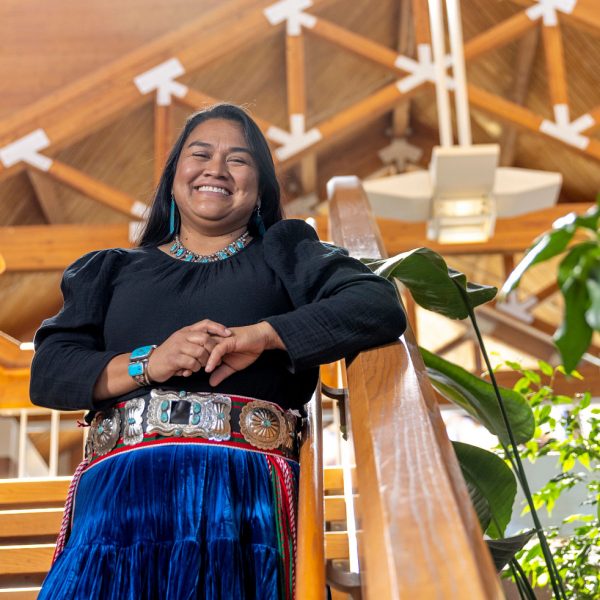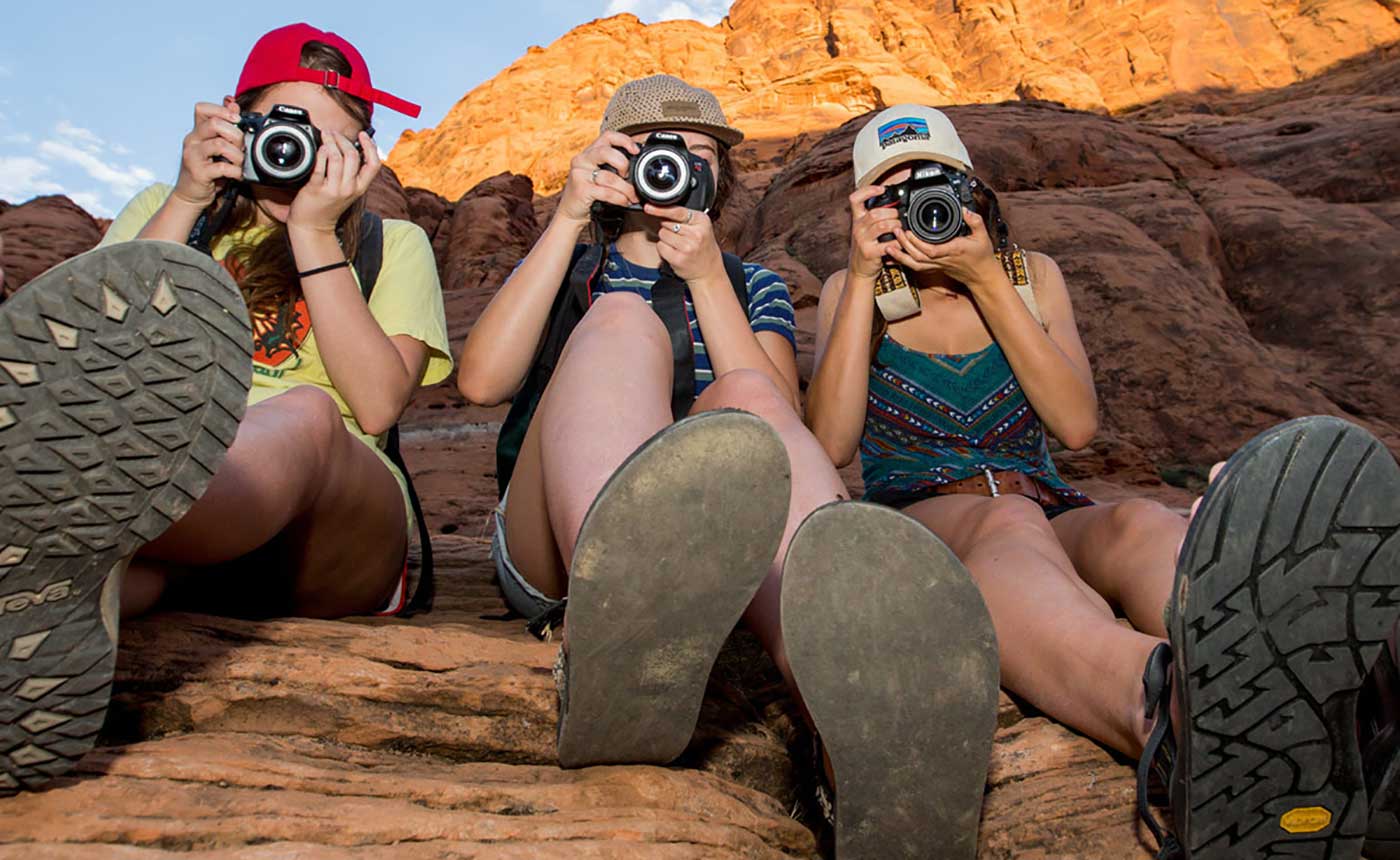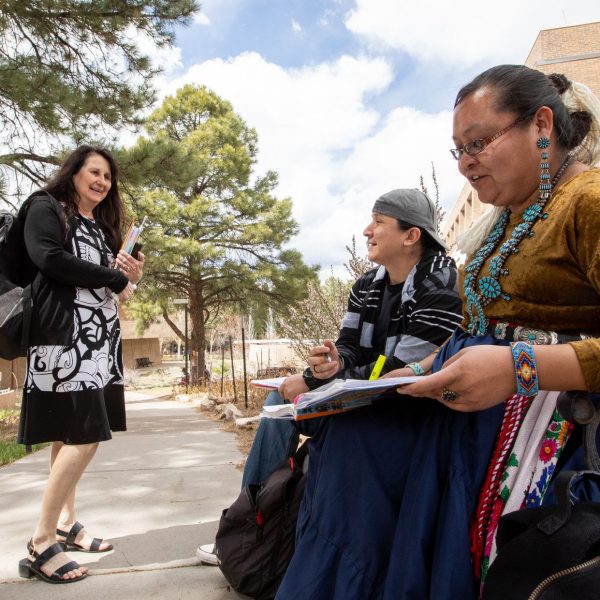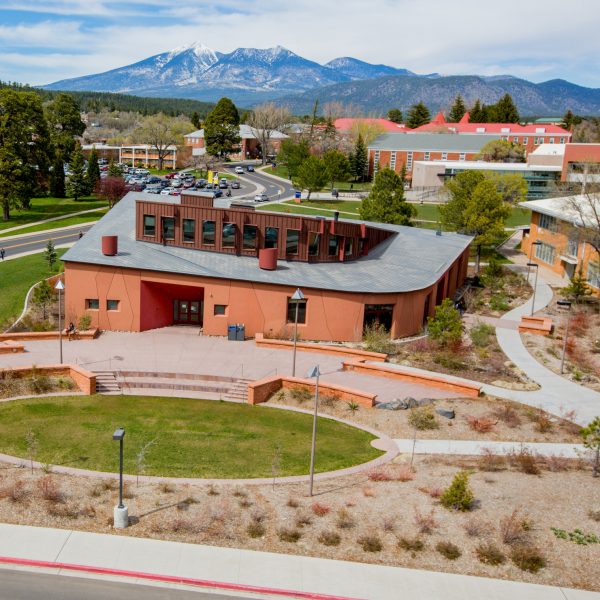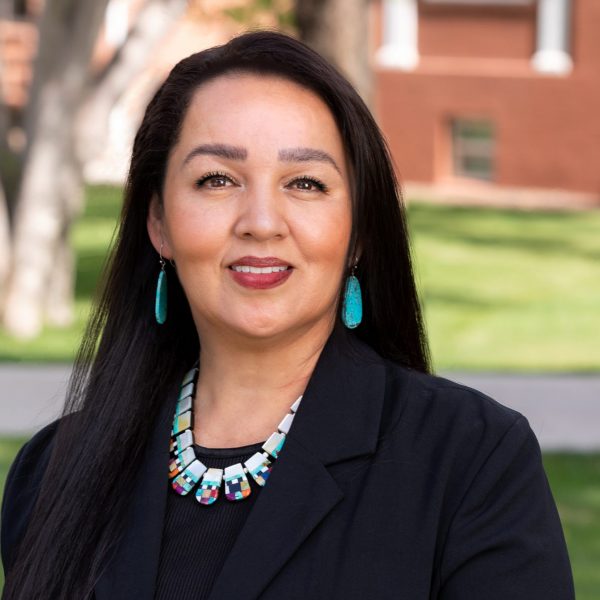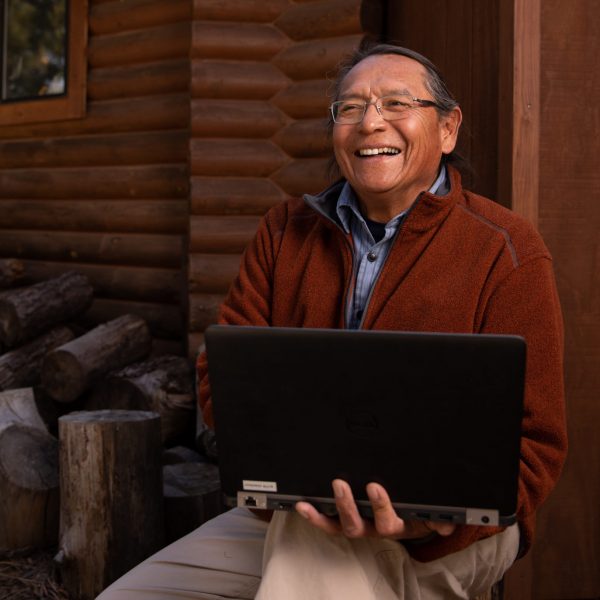Mother, guide, and Indigenous scientist and educator Nikki Cooley shares the source of her strength.
Imagine testifying in front of the United States congress. In this testimony you are applying pressure on congress, imploring them to act on a serious environmental problem—uranium mining in the Grand Canyon—that affects you and your family. The stakes are high and all eyes are on you. How would you feel?
Nervous, probably. Some of the people you address may be in the pockets of the mining company you resist. Others may be simply indifferent to you and your people. Imagine all that you would be up against, the immensity of your task, and then imagine that while you give this testimony, you are also seven months pregnant.
This may sound like an overwhelming challenge, but it’s exactly the challenge that Nikki Cooley, assistant director of NAU’s Institute for Tribal Environmental Professionals, rose to meet. It was not easy, but Cooley testified in this way during a congressional field hearing at the Grand Canyon’s Shrine of Ages in 2010.
“Being pregnant with my first child is what gave me strength,” she says. “I was tired, and my back was hurting, so I just wasn’t ready to put up with the responses and excuses.”
Cooley comes from the Diné Nation by way of Shonto and Blue Gap, Arizona. She belongs to the Towering House Clan, born for the Reed People Clan. Her maternal grandfathers are of the Water that Flows Together Clan, and her paternal grandfathers are of the Manygoats Clan. To say that she is an activist is an understatement. Cooley is action personified. At the Merriam Powell Center for Environmental Research, she worked on climate change education programs; at NAU’s Talent Search, she assisted first-generation students in their transitions to higher education. She is a former river guide, cultural educator, and co-founder of the Native American River Guide Training Program and the environmental stewardship organization known as Fifth World Discoveries. At the Grand Canyon River Guides Association, she served as the first Native American president and vice president and is a former associate director of the Native Voices Program.
In other words, Cooley can’t be stopped. Where so many might be overwhelmed, Cooley finds strength. Most recently, she testified to congress again, this time speaking virtually to the importance of Indigenous-led climate action.
“It was nerve-racking in the sense that I could not see all of them at once, because some of them had their cameras frozen or off or were not present, but I was very motivated and determined to get my message across,” she says. “I felt very powerful up there, because they did not know what I knew.”
It was their spirituality, their emotional strength that propelled my ancestors to survive, so we could be here. I look to that every day.
What Cooley knows is that she carries the collected strength of her predecessors. “I hear stories about my mother and father who went to boarding school. I hear her and my father talk about how they survived,” she says. “I think about the journey my ancestors took on The Long Walk, when they were removed, when they were released from the stockade on Fort Sumner. It was their spirituality, their emotional strength that propelled them to survive, so we could be here. I look to that every day.”
But not all Cooley’s strength comes from her ancestors. She has also found strength in relationships, in being present and building connections in her world. In this regard, her advice is to find mentors. Cooley earned a bachelor’s and master’s from NAU’s School of Forestry, but when she was younger, she didn’t think college was for her.
“I had a lot stacked against me. Education was not on my side because I didn’t learn the same way other people did,” she says. On the brink of failing in her bachelor’s program, she recalls receiving support from forestry professors such as Wally Covington and Peter Fulé. “They saw that I needed help and I, in my own way, asked for help and guidance,” she says. “They saved me from flunking out of school.”
Riding on her success at NAU, Cooley accepted an offer to attend a PhD program in Michigan. She went but did not finish. She didn’t approve of the academic culture at that level.
“The Western philosophy of academia really values whoever can get more grants, who can get more literature published, who can do the latest breaking research,” she explains. “It’s very individualized. I just chose not to engage in it. I did not have the support I had here at NAU, and it was a cutthroat world that I wasn’t prepared for.”
It’s not that Cooley can’t handle cutthroat—she can. Remember, this is a woman who testified to congress, twice. It’s more that she’s focused on making positive change, and in the better world she envisions, community takes precedence over a culture that pits individuals against each other.
“Being a Navajo woman, I’ve interacted with Tribal people from all over the world. Southeast, Northwest, Alaska, New Zealand, China. One thing all Indigenous people have in common is that the relationships we have with each other have to have a harmony and balance for emotional and spiritual well-being,” she says.
“I think people should look to Indigenous culture. There’s a saying that it takes a community to raise a child. It’s so true, and I think that kind of philosophy needs to be more accepted by other people. You can’t do the work of climate change without a community to support you, to uplift you, and to give you a reality check. Relationships are so important. We can’t do it alone.”

